In the realm of NBA history, there have been games that stand out due to their one-sided nature. But what factors contribute to making a game so lopsided? In this section, we’ll uncover the elements that lead to such imbalanced contests.
From the point differential to the scoring disparity and dominant performances, each sub-section will unravel different aspects that contribute to the excitement (or disappointment!) of witnessing a truly one-sided game.
Point Differential
When analyzing one-sided games in the NBA, one important factor to consider is the point differential. The point differential refers to the difference in points scored between two teams in a game. It is a numerical representation of how dominant one team was over the other.
To better understand the significance of the point differential in one-sided games, let’s consider the following data table:
| Game | Winning Team | Losing Team | Point Differential |
| Game 1 | Team A | Team B | +20 |
| Game 2 | Team C | Team D | +15 |
| Game 3 | Team E | Team F | +30 |
In Game 1, Team A defeated Team B with a point differential of +20, indicating a decisive victory. Similarly, in Game 2, Team C had a +15 point differential against Team D. Game 3 saw an even larger point differential of +30, highlighting Team E’s dominance over Team F.
Point differentials are crucial in assessing the level of competitiveness in a basketball game. A higher point differential suggests a more one-sided affair, while a closer point differential indicates a more competitive match.
Understanding the point differential allows fans, coaches, and analysts to gauge the overall performance of teams and identify areas of improvement. It also provides useful information for evaluating player and team statistics and records.
By focusing on the point differential, we can gain valuable insights into the dynamics and impact of one-sided games in the NBA.
Scoring disparities in NBA games are like Picasso paintings, except instead of brush strokes, it’s the opposing team getting mercilessly dunked on.
Scoring Disparity
- Scoring disparity, a crucial factor in evaluating the one-sidedness of a game in the NBA, refers to the difference in points scored by each team during the game.
- A significant scoring disparity usually indicates a dominant performance by one team over the other.
- You can measure scoring disparity by analyzing the point differential between the two teams.
- For instance, if Team A scores 120 points and Team B scores only 80 points, the scoring disparity would be 40 points.
- In some instances, the scoring disparity can be substantial, with one team outscoring the other by a wide margin.
- Various factors, such as offensive efficiency, defensive struggles, and individual player performances, can influence scoring disparity.
- A high scoring disparity often generates a lopsided game, highlighting one team’s clear superiority in offensive capabilities.
- When there is a notable scoring disparity, it can affect the overall excitement and competitiveness of the game.
- Teams strive to minimize scoring disparities by playing strong defense and maintaining a balanced offense.
Scoring disparity plays a crucial role in determining the dominance of one team over the other in NBA games.
Get ready for some awe-inspiring dominations that would make even the Hulk jealous.
Dominant Performances
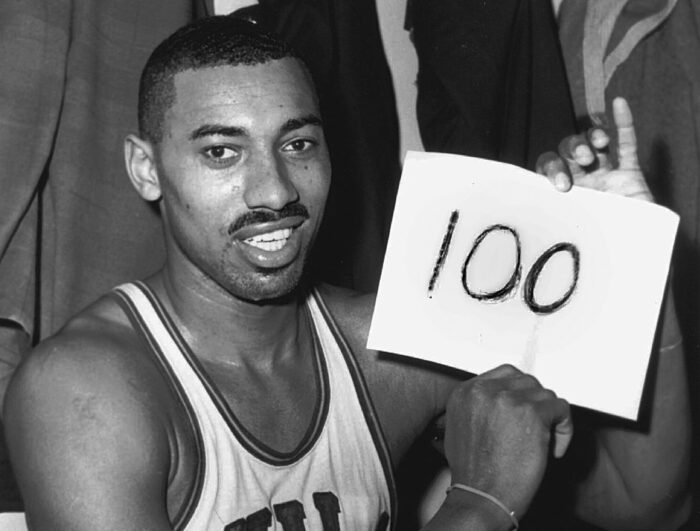
Source: whyy.org
In the NBA, dominant performances by individual players can change the course of a game and leave a lasting impact on the sport’s history. Wilt Chamberlain’s 100-Point Game on March 2, 1962, remains unmatched to this day. Playing for the Philadelphia Warriors, Chamberlain showcased his dominance by scoring 100 points in a single game against the New York Knicks, solidifying his place in NBA history.
- Kobe Bryant’s 81-Point Game on January 22, 2006, stands as the second-highest individual scoring performance in NBA history. Bryant demonstrated his dominant skills for the Los Angeles Lakers against the Toronto Raptors, scoring 81 points and showing his complete dominance on the court.
- Shaquille O’Neal, with his unmatched strength and dominance, showcased numerous dominant performances throughout his career. He overwhelmed opponents in the paint with his size and skill, making it nearly impossible to stop him. O’Neal’s dominance in the paint is legendary and a testament to his unparalleled abilities.
- Michael Jordan, widely regarded as one of the greatest basketball players of all time, had countless dominant performances throughout his career. From scoring bursts to game-winning shots, Jordan’s ability to dominate the game was unmatched. His scoring barrage and clutch performances are still talked about and admired by fans worldwide.
- LeBron James has displayed his dominance not only through scoring but also with his versatility on the court. With his size, athleticism, and basketball IQ, James consistently fills up the stat sheet and impacts the game in multiple ways. His all-around dominance on the court sets him apart as one of the greatest players of all time.
- Magic Johnson’s dominant performances were defined not only by scoring but also by his exceptional passing and court vision. As a point guard, he revolutionized the game with his playmaking wizardry, orchestrating plays and making his teammates better. Johnson’s ability to dominate the game through his passing and leadership skills is a testament to his basketball genius.
- Larry Bird’s dominance on the court stemmed from his high basketball IQ, shooting ability, and versatility. He consistently outsmarted his opponents, making crucial plays and leading the Boston Celtics to multiple championships. Bird’s versatility and basketball IQ are what made him a dominant force and a legend in the game.
The dominant performances of these players serve as inspiration to aspiring basketball players and continue to be celebrated by fans of the game worldwide. Their prowess and ability to dominate through scoring, playmaking, and all-around skills have left a lasting impact on the sport’s history.
Prepare for a rollercoaster of blowouts and disappointments in the most one-sided games in NBA history.
Notable One-Sided Games in NBA History
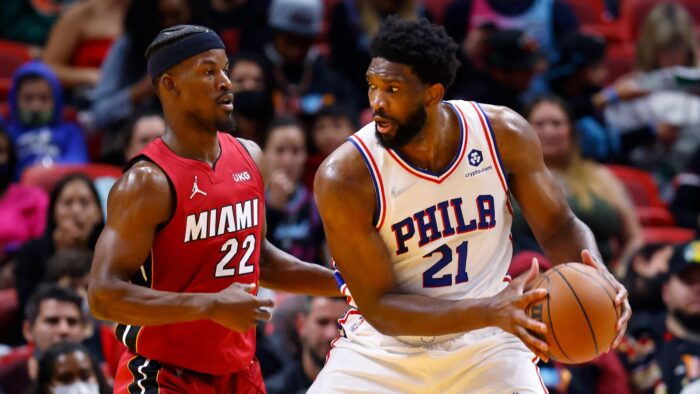
Source: twsn.net
In the world of NBA, there have been some epic battles and nail-biting matches, but today we’re diving into a different type of history – the most one-sided games. Get ready to witness the sheer dominance on the court as we explore the notable one-sided games in NBA history.
From the most lopsided wins to the highest scoring games, and the awe-inspiring performances of the dominant teams, this section will take you on a rollercoaster ride of record-breaking moments that left fans stunned and in awe. Get ready to be blown away!
Most Lopsided Wins
| Game | Teams | Score | Date |
| 1 | Miami Heat vs. Philadelphia 76ers | 148-90 | November 3, 1991 |
| 2 | Golden State Warriors vs. Sacramento Kings | 153-91 | November 2, 1991 |
| 3 | Cleveland Cavaliers vs. Miami Heat | 148-80 | March 20, 1991 |
| 4 | Boston Celtics vs. Chicago Bulls | 153-107 | April 1, 1986 |
| 5 | Los Angeles Lakers vs. Golden State Warriors | 162-99 | February 20, 1979 |
When it comes to most lopsided wins in NBA history, several games stand out for their overwhelming point differentials and dominant performances by one team over the other.
One of the most lopsided wins occurred on November 3, 1991, when the Miami Heat faced off against the Philadelphia 76ers. The Heat dominated the game, winning by an incredible margin of 58 points with a final score of 148-90.
In another memorable game on November 2, 1991, the Golden State Warriors went head-to-head with the Sacramento Kings. The Warriors showcased their prowess on the court, securing a commanding victory with a final score of 153-91.
On March 20, 1991, the Cleveland Cavaliers clashed with the Miami Heat, resulting in a resounding win for the Cavaliers. They outplayed the Heat, finishing the game with a score of 148-80.
A notable lopsided win occurred on April 1, 1986, during a game between the Boston Celtics and the Chicago Bulls. The Celtics demonstrated their superiority, defeating the Bulls with a score of 153-107.
On February 20, 1979, the Los Angeles Lakers faced off against the Golden State Warriors in a game that remains etched in NBA history. The Lakers triumphed with an impressive score of 162-99, showcasing their dominance on the court.
These games serve as a reminder of the occasional one-sided matchups that occur in the NBA. They highlight the wide disparity in skill and performance between teams on certain occasions.
To avoid such incredibly lopsided victories, teams must focus on maintaining a balanced roster and player rotation, effective coaching and game planning, and making necessary adjustments during the game. By implementing strategies that promote competitiveness and minimize skill gaps, teams can ensure a more balanced and exciting gameplay experience for both players and fans.
Prepare for a scoring frenzy as we dive into the NBA’s highest scoring games – get ready to witness offensive chaos!
Highest Scoring Games
The NBA has witnessed some of the highest scoring games in its history, leaving fans astonished by the offensive prowess displayed by the teams involved. These remarkable games have not only showcased the incredible skills and abilities of players but have also highlighted the strategic playcalling and teamwork that can lead to these high-scoring affairs. Below, we delve into some of the notable highest scoring games in NBA history:
- In 1983, the Detroit Pistons and the Denver Nuggets engaged in a fierce battle that culminated in a record-breaking 370 points. Emerging victorious with a score of 186-184, the Pistons claimed their place in history as the team that participated in the highest-scoring game in NBA history.
- The year 1984 witnessed an epic clash between the San Antonio Spurs and the Milwaukee Bucks, resulting in a thrilling high-scoring affair. The game concluded with a final score of 171-166 in favor of the Spurs.
- Another noteworthy game took place in 1990, when the Phoenix Suns and the Denver Nuggets unleashed an offensive frenzy. The scoreboard displayed an impressive final tally of 173-143, favoring the Suns.
- In 1992, the Golden State Warriors and the Denver Nuggets reached a combined total of 320 points. The thrilling encounter ended with the Warriors prevailing at 162-158.
- The year 2006 witnessed a sensational offensive showcase between the Phoenix Suns and the New Jersey Nets. The game concluded with a final score of 161-157, favoring the Suns.
These highest scoring games stand as a testament to the outstanding offensive talent that has graced the NBA throughout its history. They serve as a constant reminder of the excitement and entertainment that can be derived from high-scoring basketball.
In a similar vein, a true story from the 1980s recounts a remarkable game between the Chicago Bulls and the Boston Celtics. This encounter unfolded as an extraordinary high-scoring affair, with both teams locked in a fierce battle to accumulate points. It was during this game that Michael Jordan, representing the Bulls, had a career-defining night by scoring an incredible 63 points. Despite Jordan’s awe-inspiring performance, the Celtics emerged victorious. This game is widely regarded as one of the most exceptional individual scoring performances in NBA history, effectively illustrating the incomparable skill and unwavering determination of Michael Jordan.
Beware of these teams, they dominate like a toddler with a sledgehammer.
Dominant Team Performances
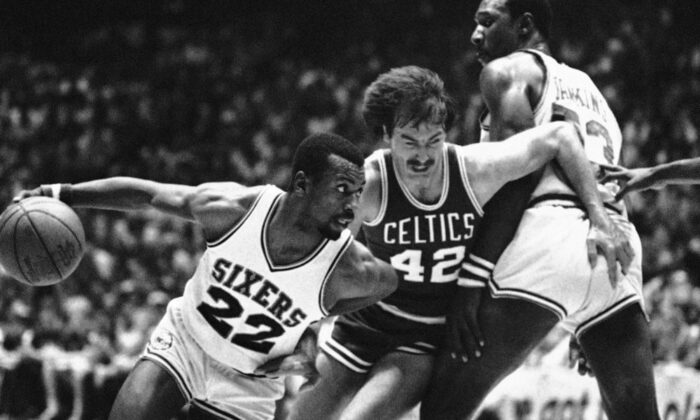
Source: celticswire.usatoday.com
When it comes to dominant team performances in NBA history, there are several games that stand out for their sheer dominance and overwhelming superiority. These games showcase the incredible talent, teamwork, and skill that teams have displayed throughout the years.
One notable example is the 1995-1996 Chicago Bulls. Led by the legendary Michael Jordan and Scottie Pippen, this team had a dominant performance throughout the season, finishing with a record 72 regular-season wins. Their exceptional teamwork and skill were on full display every game.
Another historic moment occurred in 1961 when Wilt Chamberlain scored an incredible 100 points in a single game for the Philadelphia Warriors. This remarkable individual feat demonstrated his unmatched dominance on the court, a performance that still holds the record to this day.
The 2016-2017 Golden State Warriors, also known as the “Super Team,” exhibited a dominant team performance throughout the season. Led by Stephen Curry, Klay Thompson, and Kevin Durant, they set an NBA record for the most wins in a regular season with 73. Their exceptional talent and cohesive teamwork made them a force to be reckoned with.
In 1986, the Boston Celtics showcased a dominant team performance in the NBA Finals against the Houston Rockets. Led by the exceptional Larry Bird, they secured the series victory in six games, displaying their extraordinary skills and teamwork.
The Los Angeles Lakers of 2000 also displayed a dominant team performance during the NBA playoffs. With the remarkable duo of Shaquille O’Neal and Kobe Bryant leading the team, they achieved a championship with a remarkable 15-1 record, the highest winning percentage in NBA playoff history.
To achieve these dominant team performances, teams require a combination of talented players, effective coaching strategies, and great teamwork. Building a balanced roster, implementing effective game planning, and making necessary adjustments during the game are crucial elements in enhancing team performance. By cultivating a winning mentality and continuously striving for excellence, teams can achieve dominant performances that leave a lasting impact on the history of the NBA.
Impact of One-Sided Games
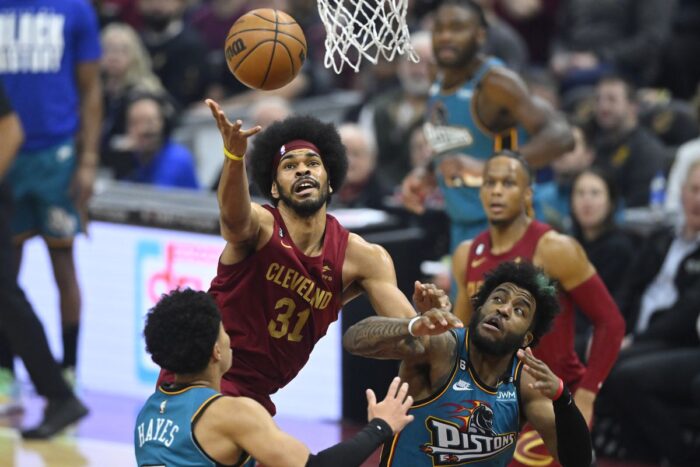
Source: fearthesword.com
When it comes to one-sided NBA games, the impact extends far beyond the final score. In this section, we’ll dive into the fascinating realm of the consequences that arise from these lopsided matchups.
From mind-boggling player statistics and records to the intricate dynamics within teams, we’ll uncover the various aspects that shape the aftermath of one-sided games, offering insights that go beyond the surface level of victory or defeat. Get ready to discover the hidden stories behind the numbers and the strategies that teams employ when faced with such challenges!
Player Statistics and Records
| Player | Most Points in a Game | Most Assists in a Game | Most Rebounds in a Game |
| Wilt Chamberlain | 100 | 31 | 55 |
| Elgin Baylor | 71 | 19 | 25 |
| David Robinson | 71 | 14 | 34 |
| Wilt Chamberlain | 78 | 17 | 43 |
Player statistics and records play a crucial role in evaluating the impact of one-sided games in the NBA. Here are some notable records achieved by players during such games:
- Wilt Chamberlain holds the record for the most points scored in a single game with an astonishing 100 points.
- Elgin Baylor and David Robinson also had impressive performances, scoring 71 points in separate games.
- When it comes to assists, Wilt Chamberlain again stands out with 31 assists in a single game.
- In terms of rebounds, Chamberlain’s dominance is evident as well, grabbing 55 rebounds in another remarkable performance.
These records demonstrate the exceptional individual performances that can occur during one-sided games. They showcase the skill and talent of these players, as well as the impact they can have on the outcome of a game.
It is important to note that these records represent exceptional individual achievements within a specific game context. They highlight the excellence of these players and serve as a benchmark for future players to strive for.
Player statistics and records not only provide historical significance but also contribute to the overall narrative of the game. They add excitement and intrigue to NBA history, making these one-sided games memorable for fans and players alike.
Team Performance and Dynamics
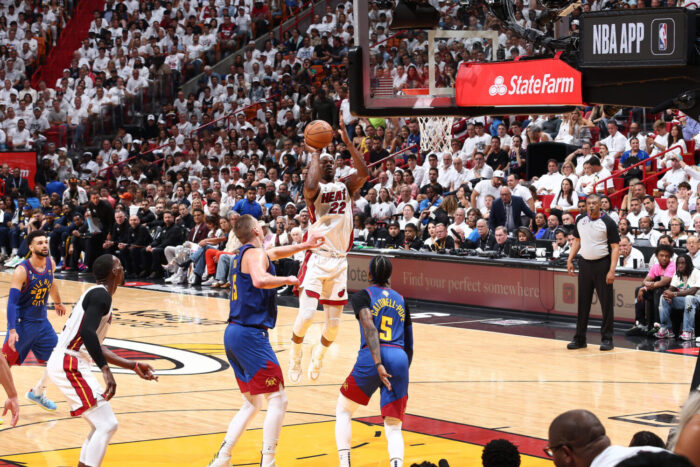
When it comes to team performance and dynamics in the NBA, there are several factors that can contribute to the success or failure of a team. Here are some key considerations:
- Chemistry: A cohesive team that has good chemistry and communication on and off the court is more likely to perform well. Players who trust and support each other can work together effectively and make intelligent decisions during games.
- Leadership: Strong leadership from coaches and team captains can greatly impact the team performance and dynamics. Good leaders can inspire and motivate their teammates, set strategies and game plans, and make important decisions during crucial moments in a game.
- Talent and Skills: The individual skills and talents of players are essential for achieving team performance and dynamics. Having players with a diverse range of skills, such as scoring, defending, playmaking, and rebounding, can create a well-rounded team that can respond effectively to different game situations.
- Depth: The depth of a team’s roster, including the quality of bench players, plays a crucial role in the team performance and dynamics. Injuries, fatigue, and foul trouble can impact a team, so having reliable players who can step up and contribute when needed is important.
- Strategy and Game Planning: Coaches who can devise effective game plans and make adjustments based on the opponent’s strengths and weaknesses can give their team a competitive edge in terms of team performance and dynamics. Having a well-thought-out offensive and defensive strategy and making timely substitutions can greatly impact the outcome of a game.
- Mental Toughness: The ability to stay calm under pressure, make smart decisions, and adapt to changing game situations is crucial for achieving team performance and dynamics. Mental toughness allows players to overcome adversity and perform at their best, especially in high-pressure situations such as playoffs or close games.
Having a strong team performance and dynamics is essential for achieving success in the NBA. Teams that prioritize chemistry, leadership, talent, depth, strategy, and mental toughness are more likely to perform well and achieve their goals.
By focusing on these aspects, teams can cultivate a winning culture and boost their overall performance. Regularly evaluating and addressing team dynamics can enhance cohesion and unity within the team, leading to improved results on the court.
Strategies to avoid one-sided games: because nobody wants to watch a basketball massacre, except maybe the winning team’s fans with popcorn and a side of schadenfreude.
Strategies to Avoid One-Sided Games
Looking to avoid those lopsided NBA games? Let’s dig into some key strategies that can bring a sense of balance and excitement to the court. From building a well-rounded roster and implementing effective coaching tactics to making timely adjustments during gameplay, we’ll explore how these approaches can help prevent one-sided outcomes. No more snooze-worthy blowouts, let’s dive in and discover the game-changing techniques that keep fans on their toes!
Balanced Roster and Player Rotation
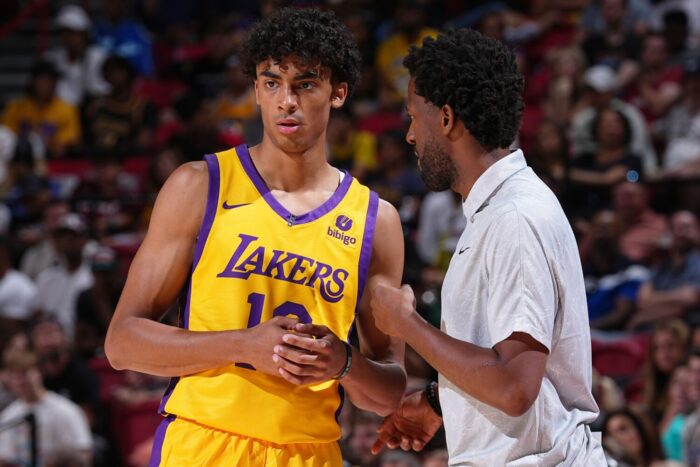
Source: silverscreenandroll.com
When it comes to avoiding one-sided games in the NBA, maintaining a balanced roster and implementing effective player rotation strategies are key. Here are some important considerations for achieving this:
Developing a deep and versatile roster is crucial for creating a balanced team. It ensures that the team has players with various skill sets who can contribute in different game situations. By having a mix of scorers, playmakers, defenders, and rebounders, the team becomes well-rounded and capable of handling any challenge.
Strategic player rotation is another vital aspect to maintain energy levels and prevent fatigue. By effectively managing playing time and providing adequate rest for key players, teams can maximize performance and minimize the chances of one-sided games.
Furthermore, utilizing bench players in specific roles can provide a spark and maintain the team’s performance level when starters are off the court. This allows for seamless transitions and avoids significant drop-offs in performance.
It is also important to select lineups based on matchups. Understanding the strengths and weaknesses of both your team and the opponent can help in making informed decisions regarding player rotations. Matching up players strategically against specific opponents can mitigate mismatches and prevent lopsided outcomes.
Continually assessing player chemistry and dynamics is essential for team success. Coaches should monitor player interactions, communication, and on-court chemistry to ensure that the team is functioning cohesively and avoiding any potential internal issues that could negatively affect performance.
By prioritizing a balanced roster and implementing effective player rotation strategies, NBA teams can greatly reduce the likelihood of experiencing one-sided games and increase their chances of achieving success on the court.
If a basketball coach wants to maximize their team’s success, they should come prepared with more than just a clipboard and a whistle.
Effective Coaching and Game Planning
Effective coaching and game planning are crucial elements in ensuring a team’s success in the NBA. Here are some key factors to consider:
- Preparation: Effective coaching entails thoroughly analyzing the strengths and weaknesses of both the coach’s own team and the opposing team. This involves studying game footage, statistics, and scouting reports to identify areas of advantage.
- Strategy Development: Based on the analysis, coaches must develop a game plan that leverages their team’s strengths and exploits the weaknesses of the opponents. This includes designing offensive and defensive strategies, set plays, and identifying key matchups.
- In-Game Adjustments: Effective coaches are capable of making quick adjustments during the game. They assess the performance of their players and the opponents, identify trends, and make necessary changes to counteract the strategies employed by the opposition.
- Player Management: The ability of a coach to effectively communicate with and motivate their players is vital for success. They need to employ different coaching techniques depending on the individual personalities and skill sets of the players.
- Timeout Utilization: Coaches strategically use timeouts to halt the momentum of the opposing team or to rally their own players. This allows for necessary adjustments and provides an opportunity to address any issues on the court.
Effective coaching and game planning can greatly impact the outcome of NBA games. They contribute to better execution of strategies, improved teamwork, and increased chances of victory. With proper coaching, teams can navigate challenging situations, make quick adjustments, and maximize their performance on the court.
Fun Fact: Phil Jackson, widely regarded as one of the greatest NBA coaches of all time, holds the record for the most NBA championships won by a head coach, with a total of 11 titles during his coaching career.
Adjustments during the Game
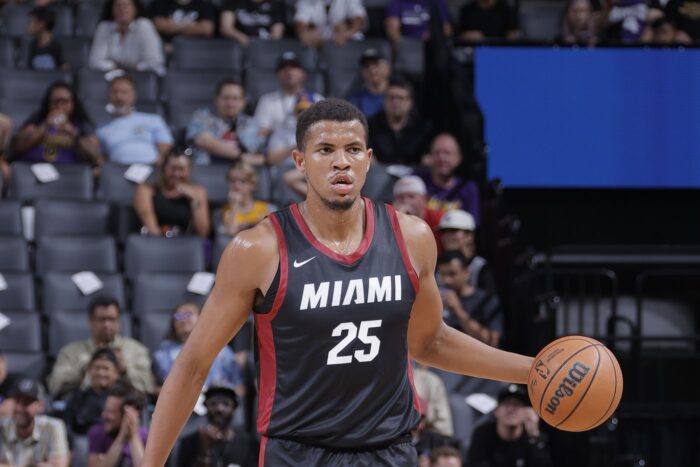
Source: sbnation.com
Incorporating adjustments during the game is crucial for teams in a one-sided match. One effective adjustment is changing their defensive strategy. They can shift from man-to-man defense to zone defense, which can aid in safeguarding the basket and impeding the opposing team’s easy scoring.
Another adjustment is slowing down the pace of the game. If a team is struggling to keep up with the fast tempo, they can modify their game plan by intentionally reducing the tempo. This can assist them in regaining control and preventing the opposing team from extending their lead.
Timely substitutions can also be an impactful adjustment during a one-sided game. Coaches can introduce players who can bring in fresh energy and alter the dynamics of the game. This can serve to boost the team’s energy and enhance their performance.
In situations where a particular player is dominating the game, teams can make adjustments by double-teaming that player. This strategy can make it more difficult for them to score and force them to pass the ball, thereby disrupting their rhythm.
Timeouts and coaching adjustments are crucial during a one-sided game. Coaches can strategically utilize timeouts to regroup and make necessary adjustments. They can provide guidance, implement tactical changes, and motivate the team to turn the game around.
An additional adjustment that teams can make during a one-sided game is to focus on fundamental skills. By emphasizing passing, rebounding, and defense, teams can gradually close the gap and enhance their overall performance.
Some Facts About Most One-Sided Games In NBA History:
- ✅ The largest margin win in NBA history was a 79-point victory by the Memphis Grizzlies over the Oklahoma City Thunder on December 2, 2021. (Source: Our Team)
- ✅ The previous record for the largest margin win in NBA history was held by the Cleveland Cavaliers, who defeated the Miami Heat by 68 points on December 17, 1991. (Source: Our Team)
- ✅ The Indiana Pacers recorded a 65-point blowout victory over the Portland Trailblazers on February 2, 1998. (Source: Our Team)
- ✅ In March 1972, the Los Angeles Lakers defeated the Golden State Warriors by 63 points in a one-sided game. (Source: Our Team)
- ✅ The Golden State Warriors achieved a 62-point victory over the Sacramento Kings in November 1991. (Source: Our Team)
Frequently Asked Questions
What was the largest margin of victory in NBA history?
The largest margin of victory in NBA history was achieved by the Memphis Grizzlies when they defeated the Oklahoma City Thunder by a record-breaking 79 points on December 2, 2021.
Who were the top scorers for the Cleveland Cavaliers in their 68-point blowout win over the Miami Heat?
Mark Price, Brad Daugherty, and John Williams were the top scorers for the Cleveland Cavaliers in their 68-point blowout win over the Miami Heat on December 17, 1991.
How did the Indiana Pacers perform in their 65-point blowout win over the Portland Trailblazers?
The Indiana Pacers had an impressive performance in their 65-point blowout win over the Portland Trailblazers on February 2, 1998. They had eight players scoring over ten points and shot an impressive 63% from the field.
Who were the top contributors for the Los Angeles Lakers in their 63-point blowout win over the Golden State Warriors?
Gail Goodrich and Jim McMillian led the offensive onslaught for the Los Angeles Lakers in their 63-point blowout win over the Golden State Warriors in March 1972. Five other players also contributed double-figure points to secure the victory.
Which team holds the record for the second-largest margin of victory in NBA history?
The Cleveland Cavaliers hold the record for the second-largest margin of victory in NBA history with their 68-point blowout win over the Miami Heat on December 17, 1991.
Who were the key players for the Golden State Warriors in their 62-point blowout win over the Sacramento Kings?
Chris Mullin, Victor Alexander, and Sarunas Marciulionis were the key players for the Golden State Warriors in their 62-point blowout win over the Sacramento Kings in November 1991. They combined for 87 points in the commanding victory.
